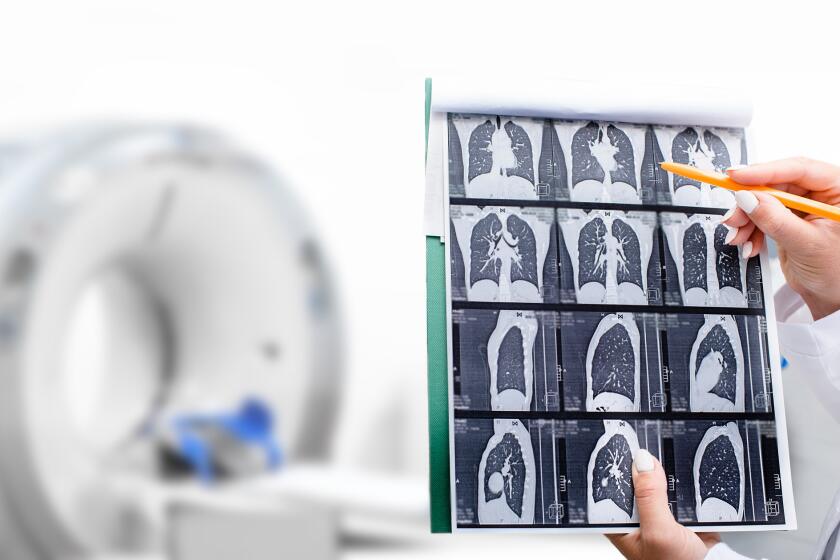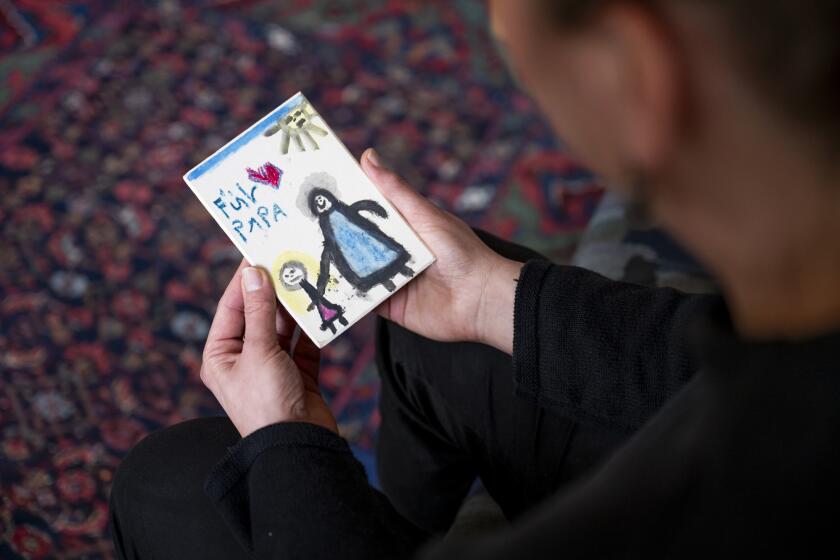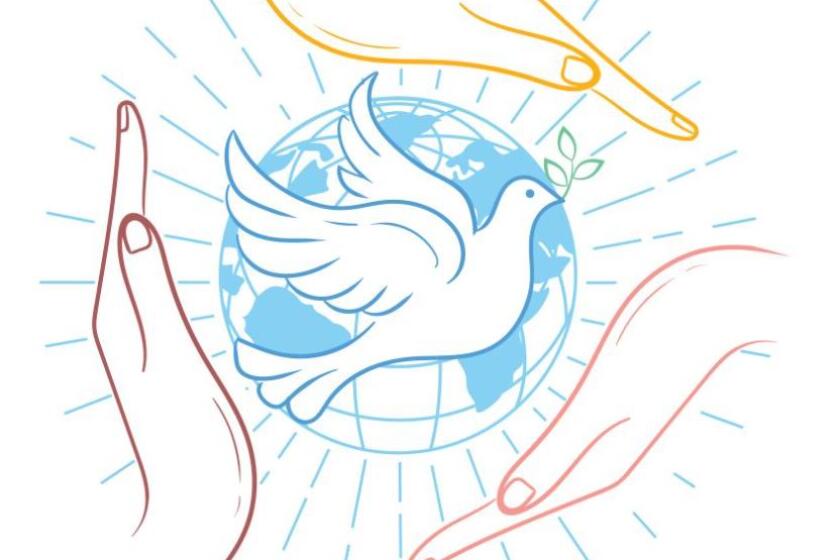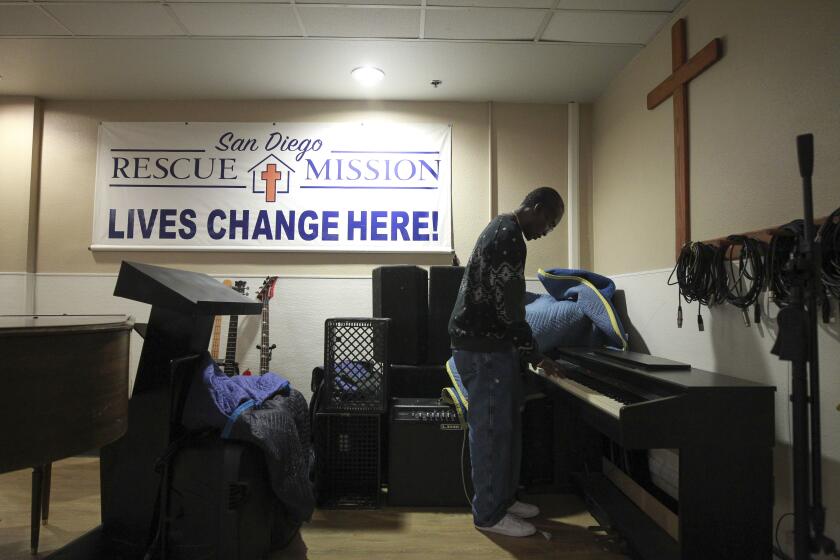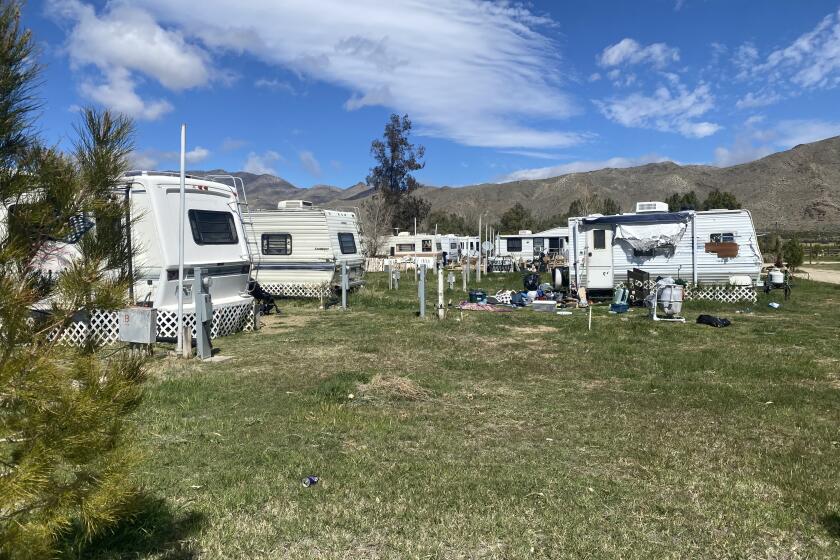Opinion: Nonsmokers can get lung cancer, too. I’m one. A persistent cough led to my own diagnosis.
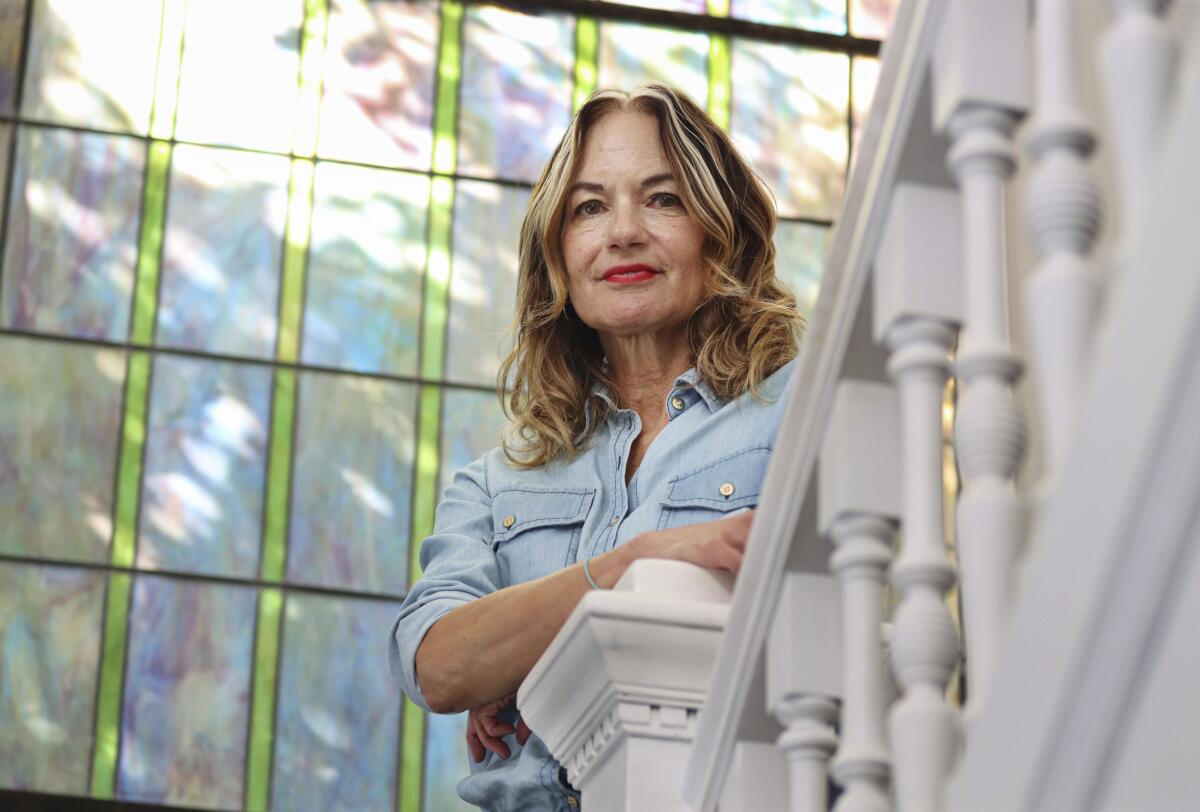
It’s more important than ever to support doctors, researchers and all who are involved in the business of fighting disease.
Walcher is president of J. Walcher Communications and lives in South Park.
I am not a smoker, and have always been healthy, so when a persistent cough hit me after a cold in the fall of 2019, I ignored it as it lingered. For me, a cough has always lingered after a cold of any kind, so it was no big deal.
Cancer is the second-leading cause of death in the U.S., eclipsed only by heart disease, and lung cancer is the leading cause of death of all cancers.
I’d had bronchitis in the past, so it was only after my mother’s nudging that I finally, reluctantly decided to go to a Scripps Minute Clinic to see if it could give me something to clear my cough up. It was Halloween, and I remember the clinic assistant was dressed in a Dodgers uniform. (It’s strange, the random observations that stick with you.) This woman said, “Let’s just get you a quick X-ray to make sure there’s nothing brewing.” (She was thinking of pneumonia.)
She was right — something was brewing, but it wasn’t pneumonia. It was a scary-looking mass that I could tell concerned those at the clinic. Three hours later, I was the one who was concerned (a gross understatement) when they called and said they needed to get me to my doctor’s office for a referral for a CT scan ASAP. Concern quickly gave way to terror. Then came everyone’s worst fear: I was diagnosed with cancer — a nonsmoker’s lung cancer.
The initial diagnosis was Stage 1, but it was elevated to Stage 2 after surgery. Still, even though this was a terrifying ordeal, I consider myself extraordinarily lucky. Right now, three years in, I have no evidence of disease. Most lung cancer is diagnosed too late — too late to be operable with no curative treatment.
I’m a Padres fan, but it was a person in Dodgers clothing who almost certainly saved my life.
2023 Lung Force Walk
Support and promote lung health.
When: January 29, 2023 at 7:30 a.m.
Where: Liberty Station NTC Park, 2455 Cushing Rd, San Diego.
Registration: action.lung.org
In the United States, about 10 percent to 20 percent of lung cancers, or 20,000 to 40,000 lung cancers each year, happen in people who never smoked or smoked fewer than 100 cigarettes in their lifetime. Researchers estimate that secondhand smoke contributes to about 7,300 and radon to about 2,900 of these lung cancers. In my case, it’s unlikely that secondhand smoke or radon was the culprit (although I should get my house tested), so I guess I just grabbed the short straw. Cancer can be a random beast.
Now people like me who have never smoked aren’t part of the cohort for whom lung cancer screenings (as in CT scans) are recommended, and that’s why, if you have a persistent cough, don’t fool around. I never imagined this could happen to me, but it did.
Until now, I’ve been very selective when deciding whom to tell that I’m a cancer survivor. Importantly, and incorrectly, many people believe the only way to get lung cancer is by using tobacco products. In fact, numerous factors — including radon exposure, longer term pollution exposure, vaping and other factors — can play a role. And while smoking is certainly a leading cause of lung cancer, it’s important to understand that nobody “deserves” this horrible disease. That’s why I took this opportunity to share my story with all those at highest risk for lung cancer and, as in my case, those who believe they have no chance whatsoever to develop the disease.
When you’re diagnosed with cancer, it’s easy to fall prey to doom and gloom. And Google can be a very dark and unhealthy place if you’re not careful. My advice is to do your research on one trusted, continually updated site, like the American Lung Association or Lungevity.
There have been impressive advancements in lung cancer treatment in recent years. This is not the same lung cancer of 10 years ago, or even five! Sure, it’s not good, but it’s not necessarily a death sentence. I discovered that there are targeted therapies and other options that now take direct aim at lung cancers at all stages. Increasingly, they are lengthening life without horrible side effects. More than one doctor has said to me, “More people are living with cancer than dying from cancer.” For people like me, and our families and friends, that is a very, very reassuring thing to hear.
I often support friends or family with their own campaigns to raise awareness or money for certain kinds of illness, but now that I know firsthand what the impact that research and development can have, it’s more important than ever to support doctors, researchers and all who are involved in the business of fighting disease. By raising money and participating in the American Lung Association’s “Lung Force Walk” on Sunday, I hope I can help bring hope and faith to others who might be diagnosed in the future. That’s all we got.
Get Weekend Opinion on Sundays and Reader Opinion on Mondays
Editorials, commentary and more delivered Sunday morning, and Reader Reaction on Mondays.
You may occasionally receive promotional content from the San Diego Union-Tribune.
